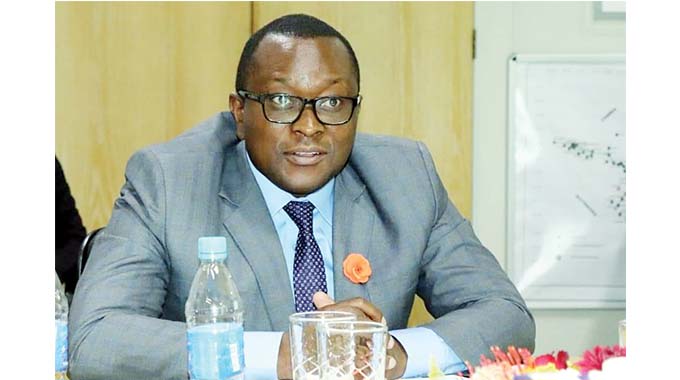ZRP to train guards under new law amendment

Nqobile Tshili, Chronicle Reporter
GOVERNMENT has announced that only the Zimbabwe Republic Police (ZRP) trained private security guards will be allowed to operate when the country reviews the law that regulates the sector as part of efforts to reduce crime.
The country has in the past months recorded an increase in armed robbery cases, and in some of the raids, the conduct of private security guards has been found wanting.
Police have also raised concerns over the training and equipping of security guards, with some of them deployed to cash-in-transit duties armed with toy guns. Lack of professionalism in the sector would soon be a thing of the past as Government moves to tighten legislation governing private security in the country.
Addressing a post Cabinet media briefing yesterday, the acting Information, Publicity and Broadcasting Services Minister , Dr Jenfan Muswere, said Government wants to follow international models when it comes to the training of private security to reduce crime in the country.

Minister Kazembe Kazembe
He said Government’s decision is informed by exposure to how private security is done in other countries. Last month, Home Affairs and Cultural Heritage Minister Kazembe Kazambe attended the 7th edition of the International Exhibition for National Security and Resilience in Abu Dhabi, United Arab Emirates where he observed how some countries were advancing in terms of increasing the security of their nations. Minister Muswere said from that exposure, recommendations have been made to Government on how the country can strengthen private security, including having cops train the guards.
“The nation is being informed that the Minister of Home Affairs and Cultural Heritage had the opportunity to visit various institutions under the United Arab Emirates’ Ministry of Interior, where he gained valuable insights into how technology can be deployed and utilised to enhance policing, security and safety of communities,” he said.
“Cabinet resolved to review the Private Investigators and Security Guards (Control) Act (Chapter 27:10) to improve the private security industry to ensure that only police-trained guards work in law enforcement.”
Dr Muswere said private security companies should complement police in reducing crime in the country.
“As such, there is a need for private security guards to receive basic formal training,” he said.
Cabinet also approved the rain-related disaster contingency strategy for the 2022/23 rainy season in anticipation of cyclones among other climate-induced hazards.
Local Government and Public Works Minister July Moyo presented the multi-hazard contingency plan for the 2022-2023 rainy season.
The strategy observes that due to climate change, the country is increasingly recording hazardous events whose frequency, intensity and complexity are increasingly becoming complex to manage.
In light of that, Cabinet noted that a coordinated approach is required to minimise the risks associated with natural disasters.
Dr Muswere said a multi-hazard contingency plan details how the country would react to natural disasters.
“Natural hazards include tropical cyclones, droughts, floods, hailstorms, lightning, veld fires and strong winds, among others. Though natural hazards cannot be prevented from occurring, their effects can be mitigated through early warning systems and effective emergency preparedness, mitigation, disaster response and recovery systems,” he said.
“Preparing for disasters improves the well-being of citizens and enhances economic growth through protection and creation of livelihood assets, thereby reducing costs associated with response and recovery.”
Dr Muswere said the contingency plan will ensure that the population is effectively prepared for any eventuality to reduce the loss of life and property.
He said the strategy details how Government and the public should avert a disaster.
“It seeks to promote a coordinated approach to preparedness and response before, during and after emergencies. The plan will strengthen national preparedness and response capacity for disaster risk management,” said Dr Muswere.
“It was therefore informed by a multi-sectorial and broad-based collaborative approach, which ensures the full participation and involvement of all stakeholders, especially the affected communities.”
Dr Muswere said the urban and rural areas are not spared from the adverse effects of climate-related hazards.
He said this was observed through the 2020/21 rainy season, which led to the damage of most of the country’s roads. The Government declared a state of disaster and launched the Emergency Road Rehabilitation Programme (ERRP) to provide the basis for mobilising required resources.

Minister Jenfan Muswere
Dr Muswere said in line with the National Development Strategy 1 (NDS-1, the Government remains committed to prioritising increased investment in disaster risk management systems.
“The national and regional early warning systems and monitoring are advising all end users to be active and ensure readiness for all hazards associated with the rainy season. This will positively impact expenditure management, reduce post-disaster trauma and result in early recovery and re-growth,” said Dr Muswere.
-@nqotshili












Comments